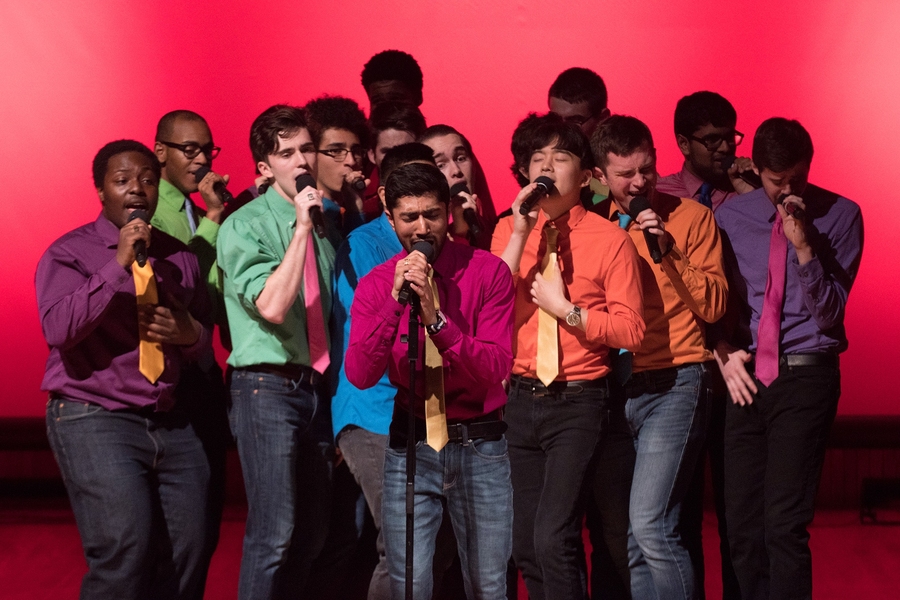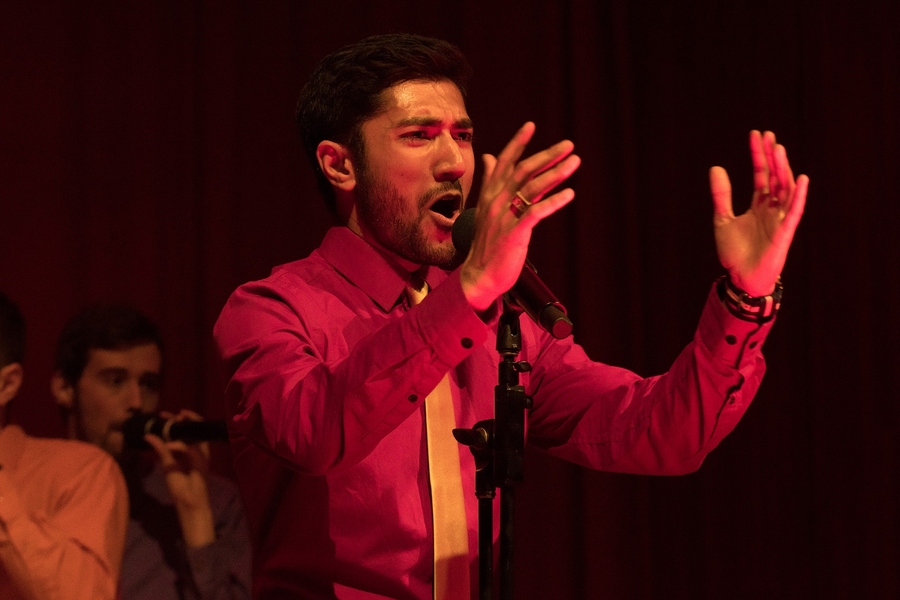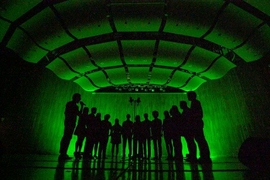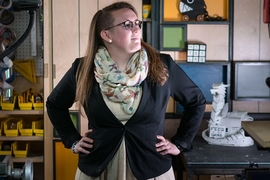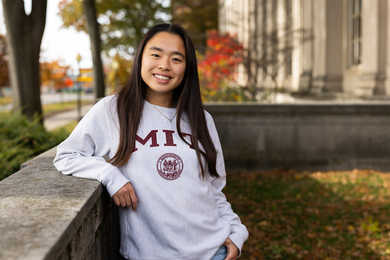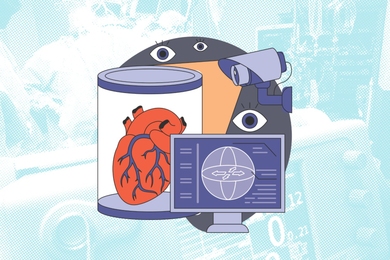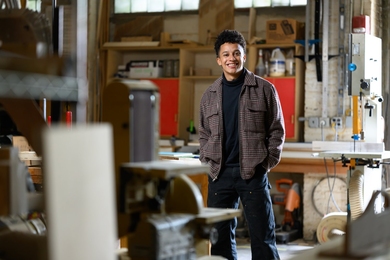On the Friday before finals, the crowd in Kresge Auditorium awaited the last MIT Logarhythms’ performance of the year. Along the side of the stage, the 16 male singers yell “Logs on three … one, two, three … Logs on three!” and then run, jump and leap into view. Although they can’t see the audience beyond the lights, they feed off the crowd’s energy as they harmonize a capella.
At the end of the night, the group sang “Climax” by Usher, featuring senior Shaun Datta, who has been singing with the group since his freshman year. Datta chose “Climax,” not just because it’s a song about saying goodbye, but because it stretched his range — something that his time with the Logarhythms helped him to do in his life outside the group.
“I wanted to sing something where I was floating some parts because it’s pretty high,” Datta says. “It's in an uncomfortable place in the male register. Even after singing it for a few months now, it’s still a little uncomfortable to sing, which is what I wanted: a song that was unfamiliar territory.”
Growing up STEM
Before the Logarhythms, Datta only made a little time for singing. He had been focused on his education in science his entire life. As the son of a psychologist and a chemical engineer, he was taught “algebra and geometry at the dinner table before my legs were long enough to reach the floor.”
At Montgomery Blair High School in Silver Spring, Maryland, he was in the mathematics, science, and computer science core, with electives that included quantum physics, organic chemistry, and complex variables. He also published a paper in Physical Review via the University of Maryland.
When Datta was considering which college to attend, MIT stood out as an excellent place to pursue his interests, which at the time he described as “the interface of natural sciences and computation, particularly quantum computation and computational biology.” But the deciding factor was how MIT students pursued their interests.
“When I went to visit the schools, there was a marked difference between MIT and everywhere else,” he says. “Many clever students go through the motions of the college application process and end up with a carefully manicured résumé but no clear sense of passion. What set MIT apart for me was that everyone is passionate about something. You can see it in the ways students spend their time outside of academics: tinkering, hacking, making music, all from their untampered passion. I wanted to be a part of that culture.”
Making time for music
Once at MIT, Datta would double-major in physics and mathematics with computer science, with a concentration in negotiation and leadership. Although schoolwork was consuming, he would find time for involvement in many activities at the Institute and beyond. He was a policy advisor and voting member with the MIT Committee on Undergraduate Program; an associate academic advisor for the Mathematical Problem-Solving Seminar; an MIT student ambassador; the designer of a new Negotiation and Leadership program alongside Professor Bruno Verdini; and an organizer of the 2016 MIT-Harvard Undergraduate Physics Conference as MIT Society of Physic Students' Secretary and Outreach Coordinator. During breaks he attended University of Waterloo’s two-week summer program that focused on the theoretical and experimental study of quantum information, and a teacher in the SPLASH program and in Barcelona. In the fall, he collaborated with Belgian lecturer Felicitas Rohden for her German art installation that visually explained quantum information.
When he first came across the Logarhythms’ information table as a freshman, he saw it as a good way to make friends. But it also turned out to be time-consuming: In addition to six hours of rehearsal a week with group and more time on his own, there were performances, competitions, and even an album recording.
But ultimately, Datta’s commitment to the Logarhythms helped him structure his time better and, more importantly, formed a counterpoint to the stress of academic pursuits. As soon as he entered the Logs’ practice space or climbed onstage, he easily switched gears from busy student to singer.
“Usually I’m quite focused on the music, and generally engaged with the feel of the music,” Datta said. “We try to leave the rest of our thoughts and distractions at the door, so we can be very focused, and to give us a reprieve from the other things we’re working on.”
Logging out
After graduation, Datta wants to build a career in quantum physics. He has received a $138,000 National Science Foundation Graduate Research Fellowship, and will choose between a DAAD scholarship at the Technische Universität München or attending one of the programs at Cambridge University. He is also considering working for a while at first and to start writing a book about the history of string theory. As he decides, he’ll spend this summer in an exchange program with a grant from the Department of Energy and National Institute for Nuclear Physics in Italy to search for dark matter candidates via machine learning at Frascati National Laboratory.
As for singing, he eventually hopes to return to the stage, whether it be via a coffeehouse solo or another a capella group. He also will join the Logarhythms’ extensive alumni network, the most active of whom attend performances and help with song arrangements.
As Datta nears graduation, he’s having trouble believing that his time with the Logarhythms is over.
“The Logs has been the utmost formative experience of my college education,” he says.
